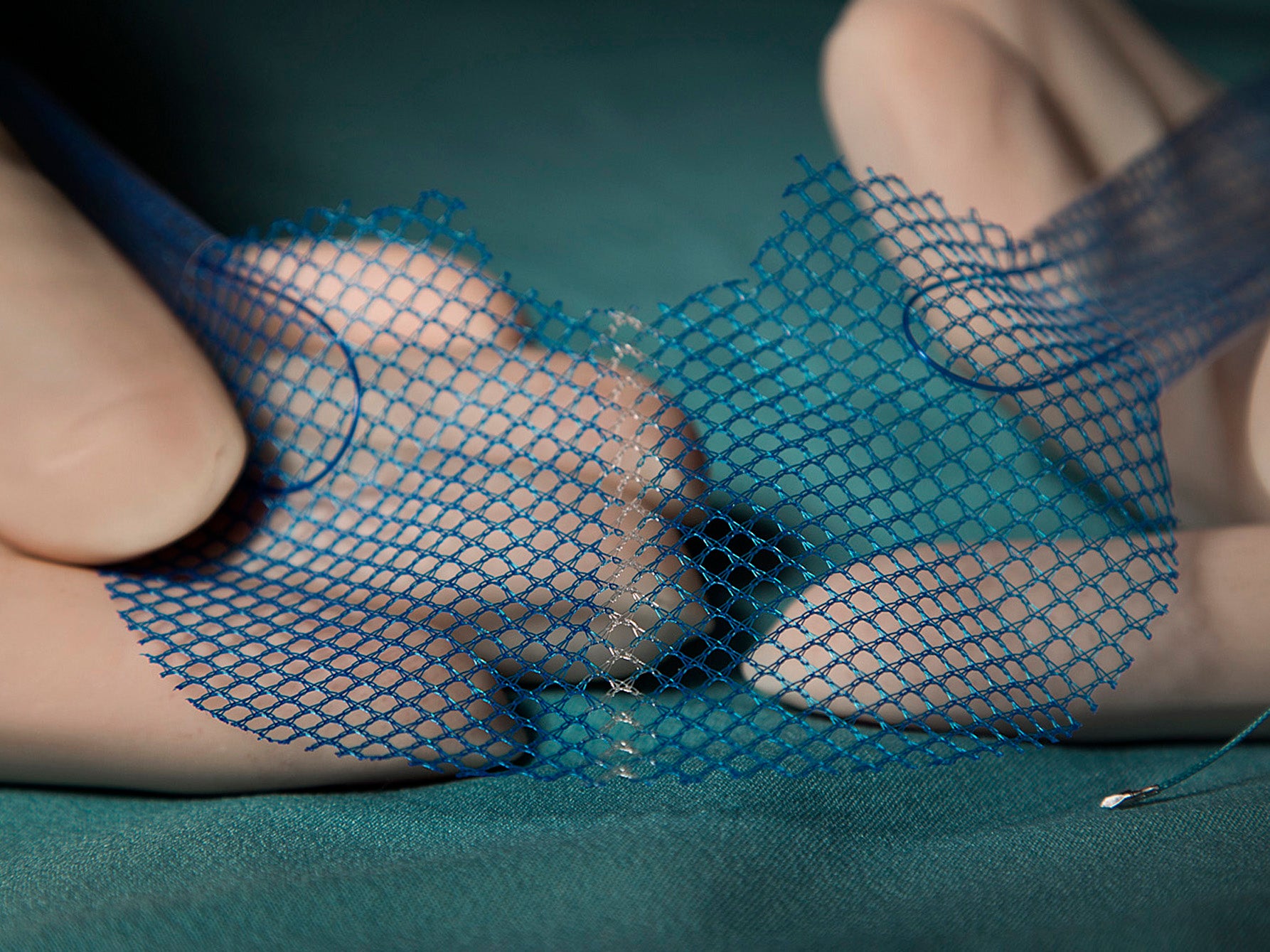'Hundreds more' vaginal mesh implants need removal due to complications within a decade
Complications of mesh implant used for urinary incontinence result in 3.3 per cent needing reversal operation, research shows – NHS estimate was 2.6 per cent

Your support helps us to tell the story
From reproductive rights to climate change to Big Tech, The Independent is on the ground when the story is developing. Whether it's investigating the financials of Elon Musk's pro-Trump PAC or producing our latest documentary, 'The A Word', which shines a light on the American women fighting for reproductive rights, we know how important it is to parse out the facts from the messaging.
At such a critical moment in US history, we need reporters on the ground. Your donation allows us to keep sending journalists to speak to both sides of the story.
The Independent is trusted by Americans across the entire political spectrum. And unlike many other quality news outlets, we choose not to lock Americans out of our reporting and analysis with paywalls. We believe quality journalism should be available to everyone, paid for by those who can afford it.
Your support makes all the difference.Hundreds more women in England who received vaginal mesh implants to treat incontinence will need the procedure reversed, a study suggests.
In a study of nearly 100,000 English women, 3,137 (3.3 per cent) required the implant to be removed within a decade. This is a third larger than the number of reversals reported in an NHS audit of the procedure.
NHS England estimated just 2.6 per cent had to be removed because of complications, but the rate may be even higher for younger women as 4.4 per cent of those aged 18 to 39 had a removal.
Researchers from the London School of Hygiene and Tropical Medicine found that overall, 6.9 per cent of women who had the procedure needed a further operation, but the reasons why were not recorded.
Dr Lucia Dolan, co-author of the study and consultant gynaecologist told The Independent: “Women undergo tape removal when a complication has occurred.
“There are no temporary mesh procedures – the expectation is that they are permanent.”
“Unfortunately many women who have mesh tapes removed will experience incontinence again,” Dr Dolan added.
Urinary incontinence will affect one in three women at some point in their lives, but mesh implants commonly used to treat the condition have been linked to life-changing side effects.
Mesh implants have been the subject of law suits involving thousands of women in the US, UK and elsewhere who have been left with injuries when their implants deform, lacerating soft tissues of the vaginal canal and causing pain and disability.
In England NHS, trusts were told the devices should be a “last resort” and should only be implanted under “high vigilance”.
This requires all doctors who perform the procedure to be experienced in using the devices and all patients to be regularly followed up with to ensure any side effects are reported.
While rigid mesh implants used to treat organ prolapse after childbirth have been linked to the most acute side effects, the flexible mesh tapes more widely used to treat incontinence – and thought to be safer – have also been called in to question.
An NHS England estimate found that 500 mesh removal operations were taking place each year because of complications. Between 2008 and 2017 the NHS audit found 2,639 mesh tape removals among the 100,516 women who had the implants for stress incontinence.
But the latest findings published in the Journal of the American Medical Association on Tuesday suggest it could be even higher. Based on NHS medical records for 95,000 women in England who had mesh implants between 2006 and 2015, more than 3,000 had a removal.
The authors note that the gradual decrease in mesh operations – falling 50 per cent over this period – is “likely to reflect concerns about longer-term complications, outcomes, and risk of further surgery after [mesh] insertion”.
Kath Sansom, director of campaign group Sling the Mesh told The Independent that a Scottish audit had also identified a higher risk of complications than the NHS England review. But these could still be under-reported.
"Disraeli said there are lies, there are damn lies and there are statistics,” Ms Sansom said.
“Nobody knows the true risk of mesh unless there is a national recall as thousands will be suffering having not made the connection mesh is causing their pain, some are treated in private hospitals where there is no data capture, others just go back and forth to GPs for pain meds or antibiotics for infection so wont be picked up.”
Join our commenting forum
Join thought-provoking conversations, follow other Independent readers and see their replies
Comments